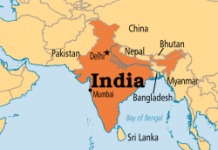Letizia Sechi, who works for 40kbooks, an italian digital publishing house, told me about this post on their site. I thought it was interesting to see what the Italians think.
Trends we see in publishing
Publishing is going social, so there is plenty of intelligent dialogue out there. Authors, editors, readers, even publishers, are sharing their experiences and their views.
When we link an interesting source (mostly on Twitter), people often ask us for our point of view. But the scenario is too complex to be successfully analyzed in 140 characters.
So, let’s try to summarize some trends.
 PAPER BOOKS
PAPER BOOKS
“We’re in this moment when print sales are still vitally important but less so every day.”
Mike Shatzkin
“e-book buyers continued to spend more money on e-books while cutting back on purchases of print titles”
Publishers Weekly
But, wait: Richard Nash is tremendously optimistic about the future of the book as an object. He thinks “the worst years of the book as an object have been the last 50 years.”
 E-READERS
E-READERS
Within a year, e-readers will be cheaper, easier to use and better. Don’t think of them as geeky things.
“A new study from Nielsen finds that 61 percent of e-reader owners are now female, compared to 46 percent in the third quarter of 2010. And, the company says, 30 percent of e-reader owners are over the age of 55.”
PaidContent
 BOOKSTORES
BOOKSTORES
Well, we all love bookstores. But there are some hard facts we have to understand and take into consideration (with some hope for the future).
“Bookshops in the United States face a grim future, with the heaviest book buyers choosing to buy digitally”
The Bookseller
“Borders’ bankruptcy this summer has further underscored a major shift in the way people consume the written word, namely in pixels as opposed to print. As our chain brick and mortar bookstores inevitably go the way of our chain brick and mortar video stores and record stores, the ever-sharp Jon Stewart and author (and PC-dude) John Hodgman mull over various ways bookstores can stay competitive .”
TechCrunch
 BOOKSTORE SHELVES
BOOKSTORE SHELVES
You know, readers learn about what to read next from a physical bookstore. It’s an old news, but buying patterns are shifting.
“As stores close, shopping in them becomes less convenient. As the remaining stores cut back on the shelf space they can devote to books, they become less attractive. All this drives more and more people to buy print online or to switch to ebooks.
Since the single most critical skill set for consumer publishers for the past 100 years has been being able to put books on bookstore shelves, this is a frightening development for any trade publisher paying attention.”
Mike Shatzkin
 NUMBER OF BOOKS
NUMBER OF BOOKS
You may not like it, but resistance is futile. And matchmaking is the key to success.
“Print on demand, digital and self-publishing are continuing to push up the number of books published in the UK and overseas, according to new output data issued by Nielsen Book. The statistics also reveal that the number of publishers has risen with 2010 seeing 3,151 new publishers registering for an ISBN, the highest for 10 years.”
The Bookseller
 READERS
READERS
Readers win. Prices will go down, all titles will be always just at a click away.
“In addition, previously languishing backlists have suddenly become valuable commodities. Out-of-print titles can easily be made available once again, a plus for both readers and writers. The reader can enjoy the entire body of an author’s work, and the writer benefits from the additional royalty income”
Nancy Herkness
“I would go further: it turns out there is a market for anything. Welcome to the age of the micro-niche! If you want to read a book about space-faring dragons written in iambic pentameter, it’s probably out there. If you have written a time-travel romance about a Nebraskan widow and the scurvy-riddled pirate who captures her heart, there are readers for that too.”
David Gaughran
 WRITERS
WRITERS
This is controversial. There are many writers that envision a dark future (i.e. Writing, as a profession, will cease to exist.)
But writers now have opportunities they never had before:
“The writer now has the power to get her work into the hands of her readers entirely on her own. She can design her own covers, use her own original titles, set her own prices, and define her own release schedules. At last, the writer can control the way her work is packaged and make sure it is delivered to the reader in the way she meant it to be.”
Nancy Herkness
Be aware: “opportunity” does not imply “success”. Success, by definition, was not designed for the masses. Writers need to start with a good book. But good books sometimes don’t get attention, so authors need to be smart and digitally savvy.
“There are two creations of value in media online: the creation of content and the creation of a public—an audience—for that content.”
Jeff Jarvis
Here are the best tips we have: study, learn, think outside the box, try, fail, try better.
 METAPUBLISHING
METAPUBLISHING
“The phrase I am creating today is “metapublishing.” I have been traditionally published in mass-market paperback, I’ve had three books appear from small presses, I’ve embraced self-publishing in the past 18 months, and I recently signed a deal with Amazon’s Thomas & Mercer imprint—which some people consider “traditional,” but if you know anything about recent publishing history, you understand Amazon has thrown the dictionary out the window.”
Scott Nicholson
PUBLISHERS
J.A. Konrath made his prophecy: “Publishing can’t survive. It just can’t. It is no longer necessary.”
Mr. Konrath’s arguments are strong and popular. Publishers need to understand them deeply, because every trend we highlighted above is a challenge to face with the right determination. We need to evolve.
Anyway, ça va sans dire, challenges can be won.
Special thanks to Livia Blackburne (you should follow her on Twitter too)


































Interesting round-up. We’ve been hearing a lot recently about new models in publishing for the digital age. One of them is serialisation of new novels – and usually it’s dismissed. But I’m doing this – tomorrow, Aug 30th, my literary novel is coming out in serial form. A novel written in four episodes, to be released weekly, like a season of Lost. Or a novel by Dickens. I came up with the idea myself, but my agency are watching this experiment very closely as a possible model for releases of their own.